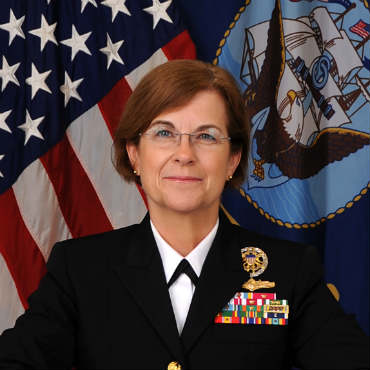Navy intelligence challenged by big data
Rear Adm. Elizabeth Train says a common networking architecture is a pressing need.

Rear Adm. Elizabeth Train
The Navy needs a common networking architecture for intelligence analysts drowning in data, says the commander of the Office of Naval Intelligence.
"We have multiple stovepipes across the services and even within the Navy where a platform or a sensor will collect something…and it doesn't go into a common backbone where all of the analysts who need to access it can," Rear Adm. Elizabeth Train told FCW after her appearance at a Feb. 6 conference hosted by AFCEA's Washington, D.C., chapter in Pentagon City.
The Navy, like other military services, is trying to make the most of the ever-increasing load of data gathered from signals, geospatial and human intelligence. To do that, Train said, the service is looking for automated analytics tools from the private sector to help make data "more accessible and discoverable," and to make that data available to analysts more quickly after it is collected.
The big-data challenge comes at a momentous time for Navy's work in "information dominance," or the use of all information domains, whether cyberspace or the electromagnetic spectrum, for war-fighting.
The service recently established a formal information dominance command, which Train called the last organizational hurdle to codifying "information dominance capabilities as a war-fighting domain."
Previously there was no single Navy command responsible for every field that falls under information dominance -- things like cryptology, information warfare and network operations.
One of the Navy's hubs for intelligence integration is a 24/7 center within ONI for supporting global maritime missions. Intelligence, surveillance and reconnaissance (ISR) data fed into that maritime center support the Coast Guard, Drug Enforcement Administration and State Department in addition to the Navy, Train said.
In addition to that, the Navy is working closely with the National Reconnaissance Office to sort through and analyze massive sets of data for intelligence purposes.
That work is all part of Train's checklist for improving naval intelligence, and the challenges are not all technological. Speaking of the need to solidify a common IT architecture for disseminating ISR data, she told FCW, "it's probably going to be a more cultural process than it is the actual hardware.





